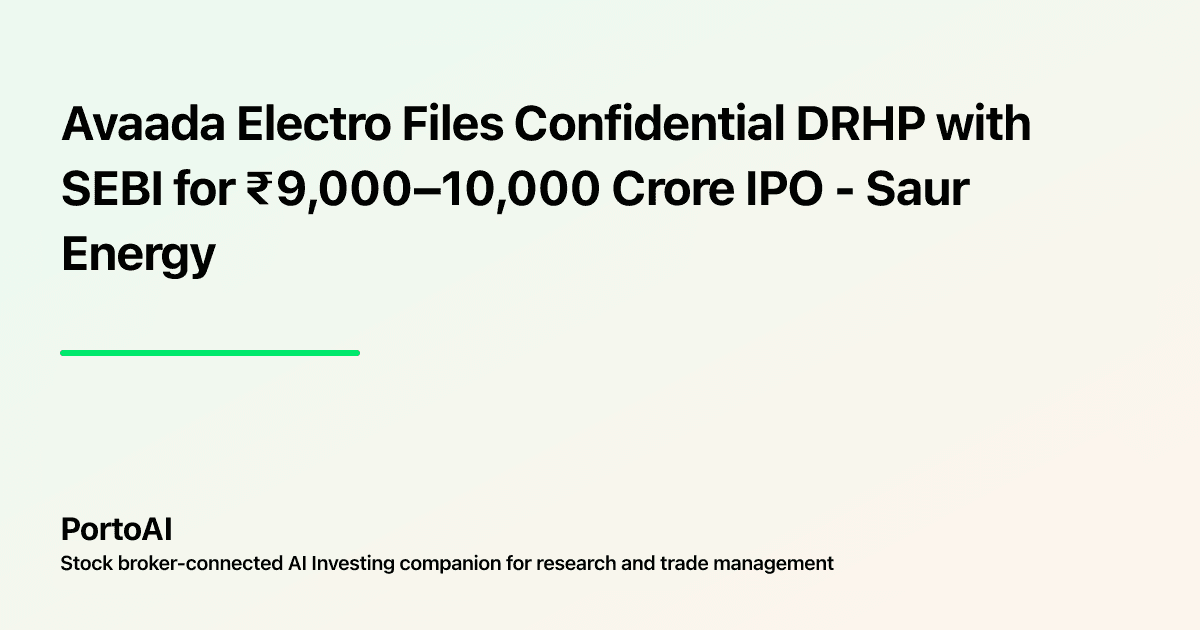What is Central Pivot Range (CPR) in Trading? A Comprehensive Guide

Venkateshwar Jambula
Lead Market Researcher
3 min read
•Published on September 23, 2024
•Understanding the Central Pivot Range (CPR) in Trading
For the discerning investor and active trader, identifying key price levels is paramount to navigating market volatility. Among the array of technical analysis tools, the Central Pivot Range (CPR) stands out as a sophisticated method for pinpointing potential support and resistance zones. This guide will demystify CPR, detailing its calculation, interpretation, and strategic application, empowering you with data-driven insights for more confident decision-making.
What is the Central Pivot Range (CPR)?
The Central Pivot Range (CPR) is a technical indicator derived from the previous trading day's high, low, and closing prices. It establishes a range of three key price levels that serve as crucial reference points for the current trading session. Unlike simpler pivot point calculations, CPR provides a more nuanced view of market sentiment and potential price action, making it particularly valuable for intraday traders and those seeking to understand short-term market dynamics.
The CPR indicator comprises three distinct levels:
- Pivot Point (PP): The primary equilibrium price.
- Top Central Pivot (TC): Represents a potential upper resistance level.
- Bottom Central Pivot (BC): Represents a potential lower support level.
These levels collectively form the Central Pivot Range, offering a dynamic framework for analyzing price movements.
Calculating the Central Pivot Range (CPR)
Accurate CPR calculation is fundamental to its effective application. The formulae are based on the previous day's trading data:
- Pivot Point (PP):
(High + Low + Close) / 3 - Bottom Central Pivot (BC):
(High + Low) / 2 - Top Central Pivot (TC):
(Pivot Point - BC) + Pivot Point
By inputting these values, traders can delineate the CPR levels for the current trading day. Tools like the PortoAI Market Lens can automate these calculations, providing instant access to crucial CPR levels alongside a wealth of other market data, saving valuable research time.
Interpreting CPR for Trading Strategies
The true power of CPR lies in its interpretative flexibility. Analyzing the relationship between the current price action and the CPR levels offers profound insights into market trends and potential trading opportunities.
Virgin CPR
A Virgin CPR occurs when the previous day's trading range does not breach any of the CPR levels calculated for that day. If the price fails to reach its CPR range on the preceding day, there's a statistically significant probability (often observed around 40%) that it may not break this range on the subsequent day. A Virgin CPR can act as a potent support or resistance level, signaling a potential continuation or reversal based on where the price interacts with it.
Price Trading Above the Top Central Level (TC)
When the current market price consistently trades above the Top Central Level (TC), it strongly suggests an uptrend. This scenario often presents an opportune moment to consider buy orders, with the TC potentially acting as a support level.
Price Trading Below the Bottom Central Level (BC)
Conversely, if the current market price falls below the Bottom Central Level (BC), it indicates a downtrend. This is typically when traders might look for opportunities to initiate sell orders, with the BC acting as a resistance level.
Price Trading Within the CPR Lines
When the price action remains within the CPR lines (between TC and BC), it often signals a period of consolidation or accumulation. Traders may observe this range for signs of a breakout, particularly if accompanied by increasing volume above the TC. If the CPR range is notably wide, it might suggest a more extended consolidation phase. Some strategies advocate for buying near the BC and selling near the TC in such scenarios, or waiting for a decisive breakout.
Leveraging CPR with PortoAI
Integrating CPR into your trading strategy requires diligent analysis and real-time data. The PortoAI platform is engineered to enhance such analytical processes. By providing sophisticated charting tools and automated indicator calculations, PortoAI empowers you to:
- Instantly access and visualize CPR levels.
- Combine CPR analysis with other advanced metrics like sentiment analysis and fundamental data.
- Monitor price action relative to CPR in real-time, supported by robust risk management tools.
The Bottom Line
The Central Pivot Range (CPR) is a sophisticated technical analysis tool that offers a predictive framework for support and resistance levels based on prior trading data. A thorough understanding and accurate interpretation of CPR can significantly enhance your ability to discern market sentiment and identify potential trading opportunities. By incorporating CPR into your analytical workflow, perhaps aided by the advanced capabilities of PortoAI, you can approach the markets with greater precision and a data-driven edge.
Blog
Investment Insights and Tips
Explore our latest investment strategies and insights.

Stocks
Suzlon Energy Q2 FY26 Results: PAT soars 538% YoY to Rs 1,279 crore, highest in 30 years; revenue jumps 85%
Suzlon Energy, an Indian renewable energy solutions provider, reported a record-breaking performance for Q2 FY26, with consolidated Profit After Tax (PAT) surging 538% year-on-year to Rs 1,279 crore, marking its...
Venkateshwar Jambula
November 5, 2025
•4min

Stocks
Groww IPO set to open: Does valuation and GMP leave room for any listing gains?
Groww’s Rs 6,632 crore IPO, one of India's biggest fintech listings, is met with cautious optimism. While strong fundamentals and profitability are noted, a steep valuation and regulatory uncertainty could...
Venkateshwar Jambula
November 4, 2025
•5min

Stocks
Softbank-backed Meesho, Zomato-backed Shiprocket among 7 companies to get Sebi's approval for IPO launch
India's capital markets regulator, Sebi, has granted approval for the launch of Initial Public Offerings (IPOs) to seven companies, including prominent e-commerce players Meesho (Softbank-backed) and Shiprocket (Temasek-backed). These approvals...
Venkateshwar Jambula
November 4, 2025
•5min

Stocks
Avaada Electro Files Confidential DRHP with SEBI for ₹9,000–10,000 Crore IPO - Saur Energy
Note: Broker connections are subject to availability and your broker’s terms.
Venkateshwar Jambula
November 2, 2025
•6min